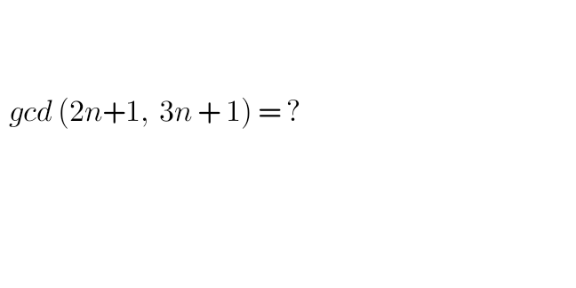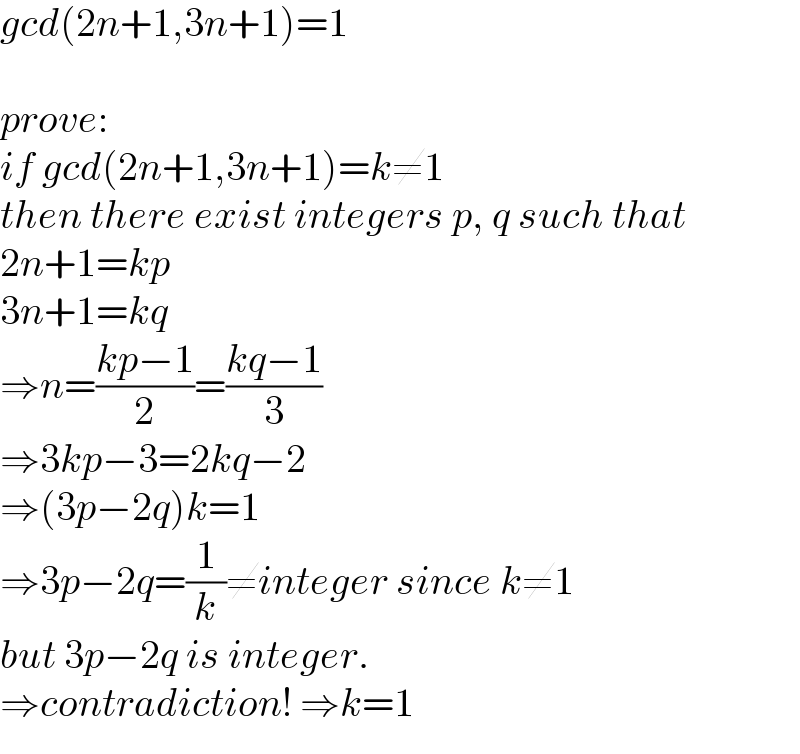
Question Number 162674 by Mathematification last updated on 31/Dec/21

Answered by mindispower last updated on 31/Dec/21

$${d}\mid\mathrm{2}\left(\mathrm{3}{n}+\mathrm{1}\right)−\mathrm{3}\left(\mathrm{2}{n}+\mathrm{1}\right)\Rightarrow{d}\mid−\mathrm{1} \\ $$$${d}=\mathrm{1} \\ $$$${or}\:{use}\:{bizou}\:{identities} \\ $$$$−\mathrm{2}\left(\mathrm{3}{n}+\mathrm{1}\right)+\mathrm{3}\left(\mathrm{2}{n}+\mathrm{1}\right)=\mathrm{1} \\ $$$$\Rightarrow\left(\mathrm{2}{n}+\mathrm{1}\right),\left(\mathrm{3}{n}+\mathrm{1}\right)\:{are}\:{prime} \\ $$
Answered by mr W last updated on 31/Dec/21

$${gcd}\left(\mathrm{2}{n}+\mathrm{1},\mathrm{3}{n}+\mathrm{1}\right)=\mathrm{1} \\ $$$$ \\ $$$${prove}: \\ $$$${if}\:{gcd}\left(\mathrm{2}{n}+\mathrm{1},\mathrm{3}{n}+\mathrm{1}\right)={k}\neq\mathrm{1} \\ $$$${then}\:{there}\:{exist}\:{integers}\:{p},\:{q}\:{such}\:{that} \\ $$$$\mathrm{2}{n}+\mathrm{1}={kp} \\ $$$$\mathrm{3}{n}+\mathrm{1}={kq} \\ $$$$\Rightarrow{n}=\frac{{kp}−\mathrm{1}}{\mathrm{2}}=\frac{{kq}−\mathrm{1}}{\mathrm{3}} \\ $$$$\Rightarrow\mathrm{3}{kp}−\mathrm{3}=\mathrm{2}{kq}−\mathrm{2} \\ $$$$\Rightarrow\left(\mathrm{3}{p}−\mathrm{2}{q}\right){k}=\mathrm{1} \\ $$$$\Rightarrow\mathrm{3}{p}−\mathrm{2}{q}=\frac{\mathrm{1}}{{k}}\neq{integer}\:{since}\:{k}\neq\mathrm{1} \\ $$$${but}\:\mathrm{3}{p}−\mathrm{2}{q}\:{is}\:{integer}.\: \\ $$$$\Rightarrow{contradiction}!\:\Rightarrow{k}=\mathrm{1} \\ $$
